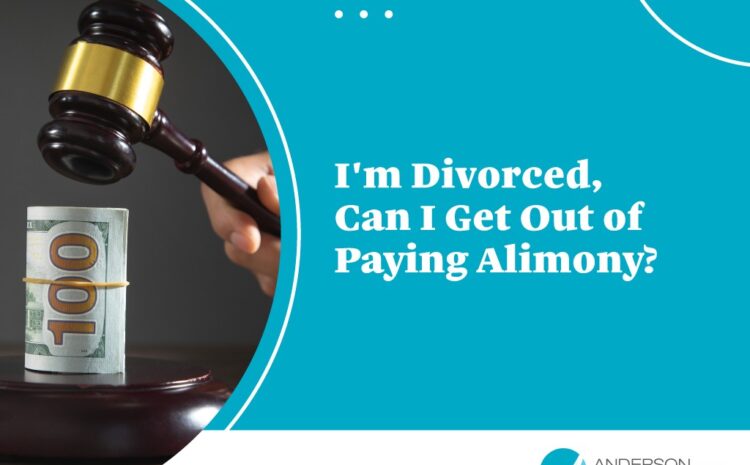
Divorce is complicated, both financially and emotionally. You and your spouse may have decided on a certain amount of alimony during the divorce process, but what if your circumstances change? Is it possible to avoid paying alimony if your situation is different? Jessica Anderson discusses how to adjust your alimony payments, which may be inevitable in some instances, on the newest episode of the Love Court on Alice 96.5 Morning Show. Even so, if you’ve been the victim of an insufficient divorce settlement, you’ll discover how to locate a better option.
The Context
Someone wrote in on this episode of Love Court on the Alice 96.5 Morning show; we’ll call them James, asking for guidance on an alimony concern.
James was married for twenty years and has been divorced for five. At the time of his divorce, he agreed to pay alimony to his stay-at-home wife for ten years. However, his circumstances have changed. Although he is still employed, he’s not working at the capacity he once was, which means taking home a lot less than he was at the time of his divorce.
James is giving his ex-wife half of his salary each month when considering his alimony and child support payments. He is finding it increasingly difficult to financially move past his divorce when he has no money left over at the end of the month. Because of this, he wants to know if it’s possible to get out of paying his alimony.
The Answer
Alimony is designed as a support payment from one spouse to another while they go through the divorce process or until they remarry or earn enough income on their own. Alimony may also be awarded in cases where one spouse has been physically or emotionally abused by the other during their marriage. A court can order alimony payments for a set amount of time or indefinitely until either party dies or remarries.
If you are paying alimony and want out, you may be able to get out of paying. However, there are some things you’ll need to take into account.
The amount of alimony paid each year is not necessarily set in stone; it can be modified if there are changes in circumstances. The best way to know if alimony is modifiable is by looking at your divorce decree or determining whether your state’s laws allow such changes. Some decrees say you pay alimony for x amount of time, and that’s it. Other decrees will say that it’s not adjustable at all.
If your decree doesn’t say anything about alimony being modifiable, then it’s usually modifiable. The law states that if you have a decrease in income and there’s been a change of circumstance (for example, they’re unemployed), you can go back to the court and ask them to look at alimony again.
The court only has jurisdiction if it’s during your decree. Meaning you can’t go back to the court and ask for your money back once your alimony period has ended.
To get out of having to pay alimony, you must file a motion with the court and provide evidence that your circumstances have changed.
Before filing a motion, you should contact your ex-spouse and try to agree. If this fails, you should file a motion with the court and provide any evidence showing that your financial situation has changed substantially since the divorce.
You will need to file your financial declaration, which will be signed under penalty of perjury. This form will include all your assets and income and any expenses, including tax liabilities.
You should also provide pay stubs from the most recent year along with copies of your tax returns for the last couple of years. The court may want to look at these documents and determine whether or not an increase or decrease in income warrants a change in alimony payments.
Suppose you have been paying alimony for several years and have stopped working due to illness or injury. In that case, you can ask for an increase in alimony payments based on these circumstances by filing a motion with the court.
If you need more information and want to come in for a consultation, call 775-823-0049.
